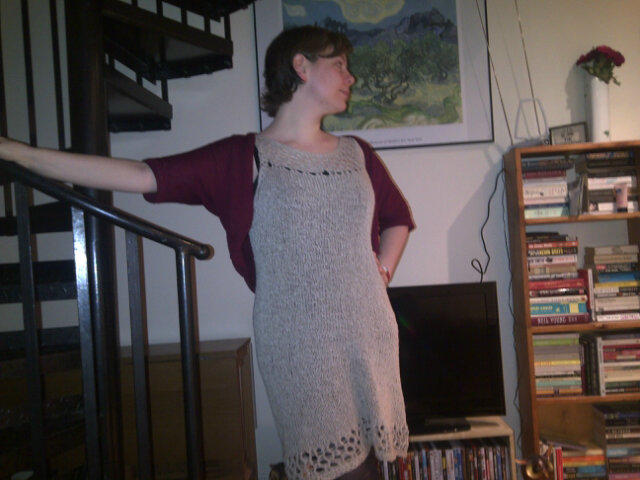 I loved jury duty.
I loved jury duty.I tell you this not just to keep you updated on "stuff I think is awesome" (and its important corollary, "stuff I think is rubbish") but because s.e.smith reminded me of it - and of the fact that this is, if you believe every portrayal of it in fiction ever, quite a niche opinion.
The odd part was that it was the most depressing, heart-wrenching moments of it that made the whole thing feel worthwhile. Sitting around for endless hours in the waiting room, getting seriously good at sudoku, reading like a voracious banshee and remembering how to knit was all fun enough - but I was on the dole at the time, so that's pretty much what I did every day anyway. (Oh alright, and occasionally applying for jobs, but the other activities were a lot more effective at drowning out the constant sense of being a useless stain on the arsewipe of humanity. Being unemployed is NOT FUN.)
"I remember the feeling of community brewing, of democracy happening"
~ Ani DiFranco, Paradigm
When I finally got called to a trial, it was genuinely fun: we've all seen a gazillion courtroom dramas, so seeing it for real was a thrill - especially noting all the ways British procedure is quaint and quirky and often mildly ridiculous, and less dramatically grandstandy than its US equivalent (or, at least, than US TV shows) - no gavels! for example. (Oh, the wigs.)
Picking through the evidence was great fun; no one can have read as many murder mysteries as I have and not be excited at the prospect of figuring out who's telling the truth, who's lying and why, what might be the real story. Jury deliberation was a grubbier version of the same process - if I tell you that, in one case, both the defendant and plaintiff worked at a strip club, I'm sure you can imagine the turn the discussion took. ("So do they take all their clothes off?" "I am not entirely sure that's relevant to whether or not one of them stole the other's bag, Skeevy Middle-Aged Dude!")
But once you've reached a verdict, it stops being a whodunnit, a brain teaser, a game. That's the point where you've changed someone's life forever. I remember announcing that we had found a 17 year old boy guilty, hearing his mother's wails echo around the pre-fab courtroom; gazing blankly out of the steamed-up bus window with tears drizzling down my cheeks. It's the most wretched I have ever felt.
And it's an experience I wouldn't have missed for the world.
For all the problems with the criminal justice system, we still, to an extent, put our faith in it to lock up the bad guys and protect the innocent. It's just a lot easier to do that when you, personally, aren't the one charged with telling the difference between the two. Being forced to take responsibility for that decision, alongside eleven other Good Men And True, is an incredibly powerful way of binding people to a polity. It makes you realise that justice isn't delivered from on high, but worked out, messily and imperfectly, by individual members of a community.
It's a lot easier to say "people like that should be locked up" if you're not directly involved in making that decision. Jury duty requires citizens to put their money where their mouth is, to admit their complicity in the system, rather than calling for someone else to sort out the country's problems.
Which is the hardest bit, and also the only part of it that's worthwhile.







